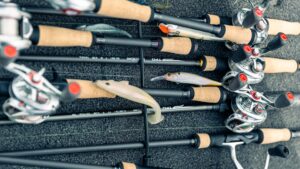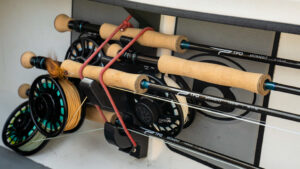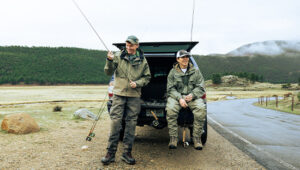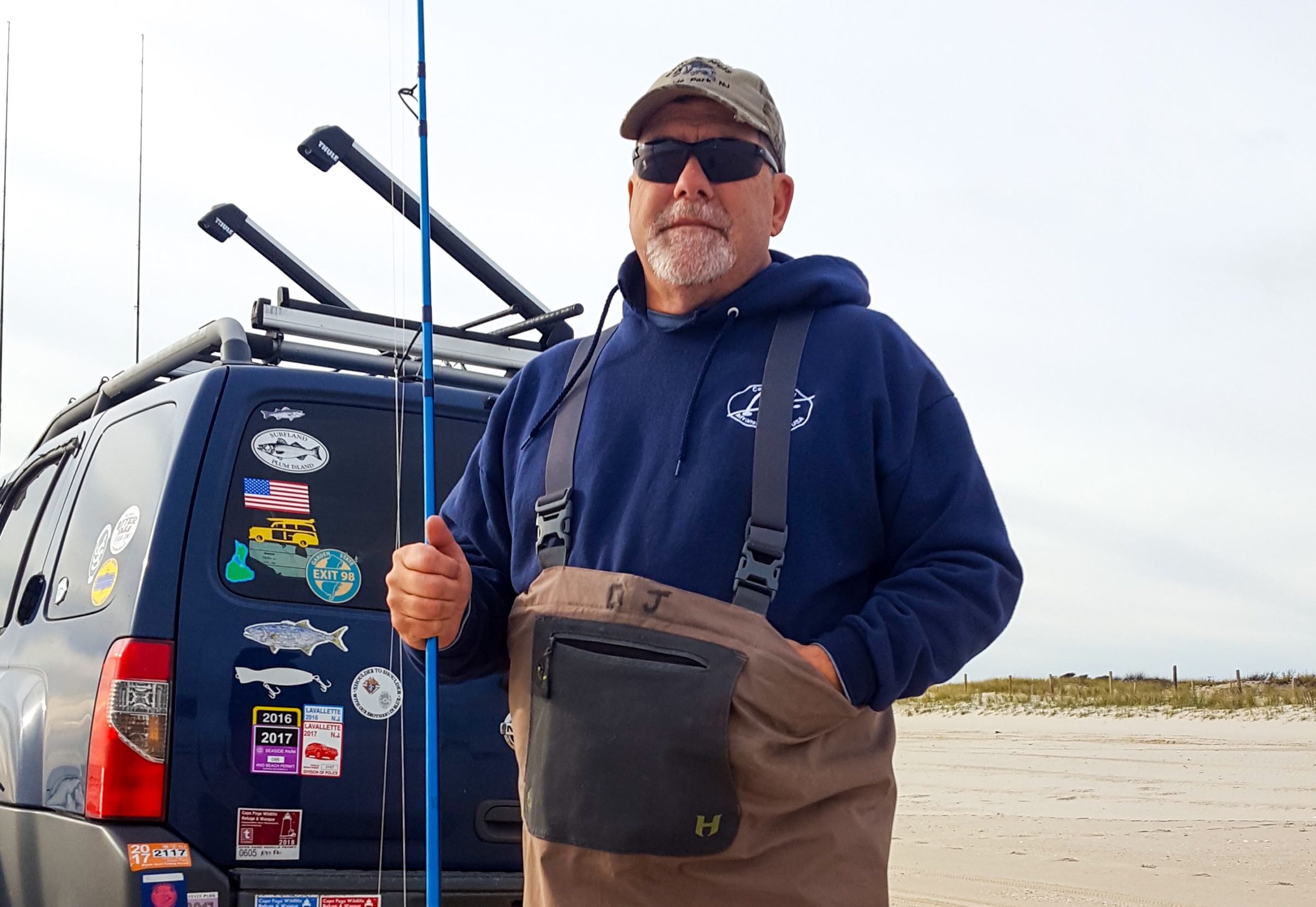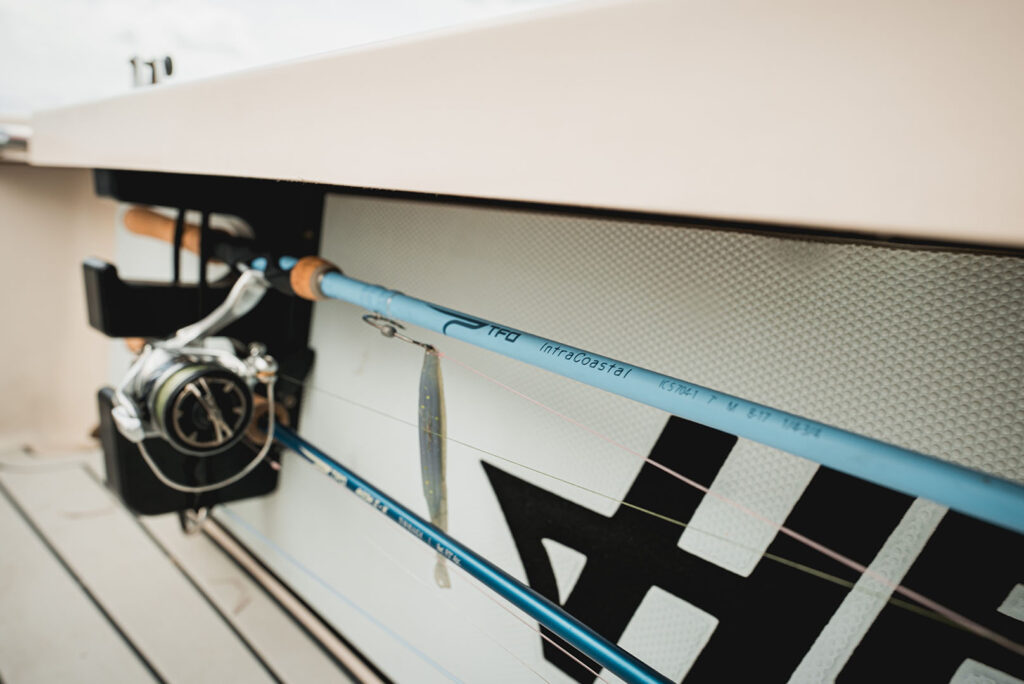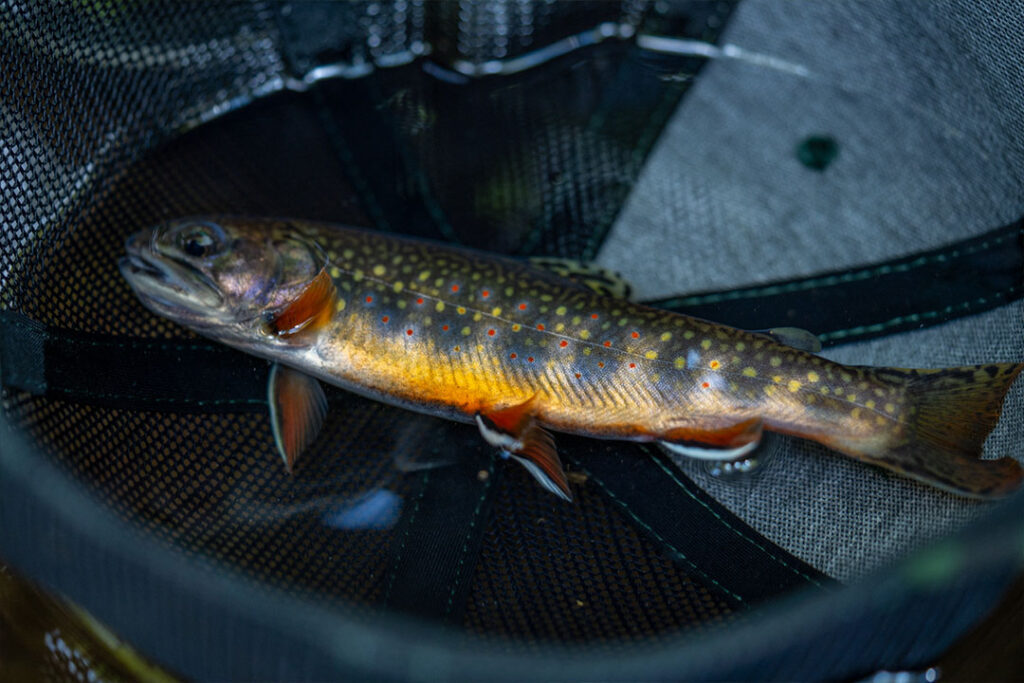This is the second part of our interview with TFO ambassador DJ Muller, who took the time to discuss his passion for surf fishing and his favorite species, stripers. Muller, a noted author and guide, is an expert on both topics. Here’s what he had to say:
TFO: Do you see the internet as a good thing because it gives people information, but it’s a bad thing because of the way it’s been used?
DJM: “It’s totally destroyed fishing. Totally destroyed it. I know because of marketing and sales it’s helped, but it’s totally destroyed fishing. Saltwater fishing is much different that freshwater. You have migration times and heightened times of really good fishing and times of not so-great fishing, but there’s fish to be caught. In terms of migration periods, it’s very good, when you can catch ten, twenty, thirty fish a day and some big fish, so on and so forth. Normally, if you catch a few fish a week you’re happy. The thing is with the reports, they’re instant. You get a bend in your rod, somebody sees it, takes a photo and it’s up on Facebook in fifteen minutes. All of a sudden, there are fifteen guys at that spot. Kind of sucks the life out of it. It takes the fun and excitement out of fishing. It’s killed it. Destroyed it. You work to catch a fish and then somebody posts a photo on Facebook, then there’s somebody there in minutes. Guys are driving around and they get a Facebook post, so let’s go fish (this area). Then there’s fifteen trucks on the beach in twenty minutes. Totally destroyed it. It’s terrible. That’s why I really enjoy night trips, where people can’t see you. In the daytime, guys sit up on the boardwalk or in their trucks or whatever, then they’re in motion. It’s really terrible. I always pray that we catch a lot of fish at night. It’s the stealthy way to go. In general, I’m talking about extreme migration periods. I really like fishing at night, where your partner might be two hundred yards away on the next rock over. That’s what I like the most, although blitz fishing is fun. You’ll see a million peanut bunker and a thousand bass on them.”
TFO: You started with your dad, but ultimately what lured you into surf fishing? You could have gone freshwater or a different route, but why the surf?
DJM: “I used to fish the ponds and almost every day we’d fish it. I’d go sometimes, but I found it boring. It wasn’t stimulating when you’re buying worms or a night crawlers and you go out there and catch a largemouth. That was fun, but it was very limiting. Then you get in saltwater. Things change by the hour. The tides. Different levels of water. Winds. Bait migrations. Fish migrations. Mix all that together and it can be very complicated. There’s much more brainwork. You have to do a lot more thinking and processing. I’ve always said it’s like doing a crossword puzzle. Every day it’s a puzzle. You look at the clues. You put them all the together and you try to come up with something and see what works. When you’re good at it, it does work. It is a lot of fun as far as the figuring and the variables. It’s much more of a mental game. There is a physical part. You’re getting hit by waves when you’re walking across sandbars. It’s the mental, anticipating where the fish will be and why. To me, that’s very stimulating. I enjoy that a lot.”
TFO: Where’s your favorite place to fish? I’m not asking for a specific spot, but in general, where do you like to go? Do you have a favorite area? Montauk? Somewhere in North Carolina?
DJM: “I like fishing in New England. I know that’s pretty general. Block Island (in Rhode Island), which is a playground for surf fishers. Cuttyhunk in Massachusetts is playground for stripers. There’s a lot of water and not many people. Cuttyhunk has had a bass club there since 1864. It’s legendary with allure with folk history. It’s a great place with great fishing and a lot of fun. It’s a desolate island out in the ocean. There’s not a lot there, but as far as fishing, it’s one of my favorite places. There are other places — Martha’s Vineyard, Montauk. There’s a ton of places to fish, but two notable ones that I like to fish are the ones I mentioned.”
TFO: Your favorite species in the surf? And why do you like pursuing them?
DJM: “Striped bass. A hundred percent. It’s a great fish. It goes everywhere. I don’t know what it is, but the call for striped bass is very loud. Pretty much that’s all I fish for. I do some freshwater, but when it’s time to get serious, I go for the stripers. I spend a lot of time and travel in pursuit of stripers, from March until January. We’re always moving somewhere, going somewhere. Where ever they are, I go. If they’re in the back bays, we fish the back bays. If they’re in the rivers, we fish the rivers. If they’re in New England, we go up there in the summertime. After Christmas, they’re in the Outer Banks in North Carolina. It’s a fish that means a lot. It’s an intriguing fish. We do a lot to pursue and catch them. Ninety-nine percent of our fishing is catch-and-release. Most of the guys that appreciate striper fishing don’t keep them because they understand it was a resource that was depleted in the ‘90s. A lot of the guys understand that and appreciate it. A striped bass is worth a lot more alive than it is dead. That’s how I feel about catch-and-release.”
TFO: Do you fish conventional gear or fly? Both?
DJM: “I fish full spin. Ninety-five percent spin.”
TFO: What do you like about the TFO line of rods?
DJM: “I use the TFO surf rods in different situations, depending of the size of the fish and conditions. I use their Surf Series rods. They’re very good rods for the money. I do fish other rods that cost five, six, seven hundred dollars apiece. But the TFO line is a very good rod for the working man’s dollar. I do a lot of guiding with entry-level people. Most of the guys starting out, I want them to have a good piece of equipment for the money. That’s one thing that’s drawn me to TFO, that appeal. Are there things I would change on some of them? Yes, absolutely. That’s why I’m in the position to help modify some of them.”
TFO: You guide a lot of people. What’s the biggest mistake people make? Any advice?
DJM: “Most guys don’t pay attention. They don’t look at the situation. They don’t pay attention to detail and what’s going on in front of them. A lot of that is all there for you in fishing. The fish reveal themselves. A situation unfolds. If guys would study the water and see what’s going on before they cast and have a good reason to cast, they would do much better. Nine out of ten guys walk out to the water and start casting and retrieving without looking at anything. I think that’s the problem most guys run into. As I’ve gotten older, I cast less. I study what’s in front of me much more than I used to. I make much fewer casts, but those casts are high-percentage casts. My proficiency rate is much better now than it once was. My recognition is much better. You see something. You know what to do. What to put on. Where to go. How to work it. That’s really important. I teach guys that. It’s sight recognition, seeing something, then knowing what to do. You may only get one shot, so you want to do the right thing. It’s not a freshwater situation where the bass are always there. The fish could be here one day and then tomorrow afternoon, they could be thirty miles from here. So you have to see it and react and do the right thing. It’s a very impulsive sport. A guy sees a guy catch a fish over there, so then he wants to go over there.”
